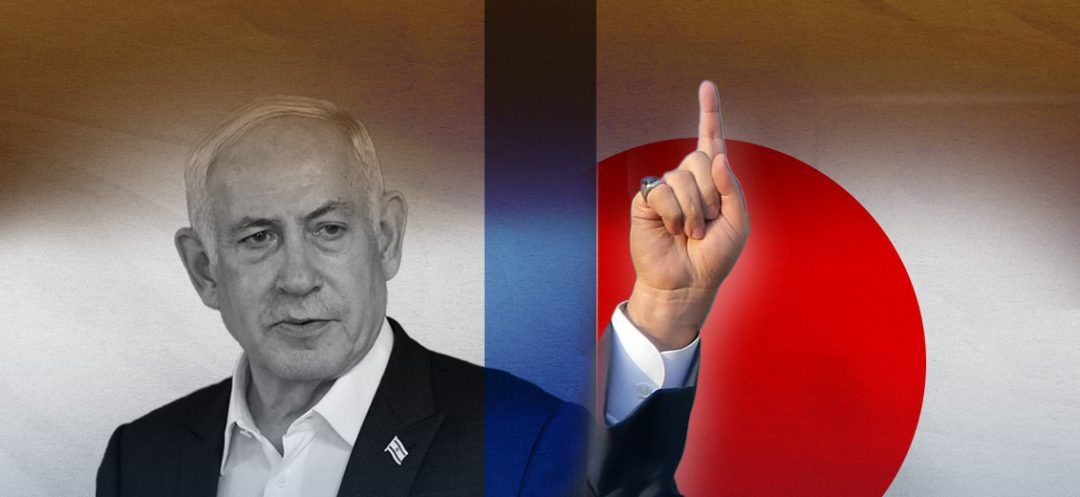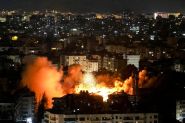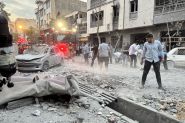- Home
- War in the Middle East
- Lebanon-Israel Mediation: Before or After Settlement?

The race between war and settlement is at its peak. Which one will prevail?
Given the current situation on the ground, notably the declared positions of the Hebrew State and the Iran-led “Obstructionist (Moumanaa) Axis,” urgent evacuation advisories for foreigners and heightened security measures including the closure of some embassies in Beirut, the region is clearly on the brink of escalation. With mediation channels closed, an explosion appears to be imminent.
Following the triple assassinations—Hezbollah’s top field commander and second-in-command Fouad Shokr in Beirut's southern suburbs, Hamas’s political bureau chief Ismail Haniyeh in Tehran, and the Qassam Brigades’ leader in Gaza Mohammed Deif on July 13—that dealt painful blows to the Moumanaa Axis, shifting the balance in favor of Israel, Hezbollah’s Secretary-General Hassan Nasrallah declared, “There is no discussion outside the battlefield.”
His declaration was in response to foreign mediators’ attempts to convince Iran and its proxies to “respond rationally” to the massacres perpetrated by Israeli Prime Minister Benjamin Netanyahu. The latter had returned from Washington with Congress’s green light to finalize his mission swiftly ahead of the US elections and before the Middle East peace process gains traction.
Netanyahu exploited the rocket strike, whose origin is not confirmed, on a field in Majdal Shams in the occupied Golan Heights to place the blame on Hezbollah. With this alibi in hand, he conducted a series of security and intelligence operations, including the destruction of facilities at the Yemeni port of Hodeidah, the airstrike on Beirut's southern suburbs in which Shokr was killed and Haniyeh’s assassination. This occurred despite intermediaries affirming that Beirut, the airport and the southern suburbs were considered as red lines for Israeli retaliation.
Will Netanyahu push the region toward war, leveraging the outcomes of his Washington visit, or will the parties maintain the rules of engagement to prevent it?
Before returning from Washington and following the Majdal Shams rocket incident, foreign mediators reached out to Hezbollah’s leadership with proposals and solutions to avert war. Sources within the pro-Iranian party disclosed some of these suggestions, including that “Israel is ready to negotiate a political and security agreement, along with new arrangements to resolve the disputed border points with Lebanon. Israel refuses to revert to the situation before October 7, citing new factors that cannot be ignored.”
According to sources, the party rejected the offers and informed the mediators that “no discussions on any issue will take place before a ceasefire in Gaza is achieved and Hezbollah’s right to avenge Shokr is acknowledged.”
A politician close to Hezbollah noted that “Israel has disregarded the mediators' assurances,” especially those made by US envoy Amos Hochstein.
Hochstein attempted to secure a commitment from Hezbollah not to retaliate against Israel's response to the Majdal Shams missile, and proposed a formula that the party rejected. According to the formula, “Israel would cancel its retaliatory strike to the Majdal Shams incident in exchange for the party's withdrawal from the area south of the Litani River.”
Hochstein’s stance caused tensions with Parliament Speaker Nabih Berri and Druze leader Walid Jumblatt, leading him to enlist Deputy Speaker Elias Bou Saab’s help to restore normal relations and move past the tensions with Berri. This situation arose particularly after Nasrallah demanded “a halt to communications with Hochstein, holding him—and by extension, Israel—responsible for the crime in the southern suburbs of Beirut.”
Consequently, the party sees no value in maintaining communication with mediators, as Israel has effectively undermined their role.
How Will the Moumanaa Axis Respond?
According to political sources close to the pro-Iranian circle, “The Moumanaa Axis is counting on the element of surprise, but the nature of the response is still under evaluation, as confirmed by Nasrallah. Several scenarios are being considered, including a simultaneous, seismic strike against Israel from multiple fronts, or a military strike from Yemen targeting Israel, while an intelligence and security operation is conducted within Israel itself.”
A military expert notes that what is unfolding is just the beginning of a settlement process. Netanyahu has a limited window to complete his mission of dismantling Hamas and is specifically focused on eliminating the key founding leaders of both Hamas and Hezbollah, according to Israeli intelligence data. Israel is conducting precise intelligence operations to kill these leaders as a precursor to a settlement that will likely affect the entire region.
Read more



Comments